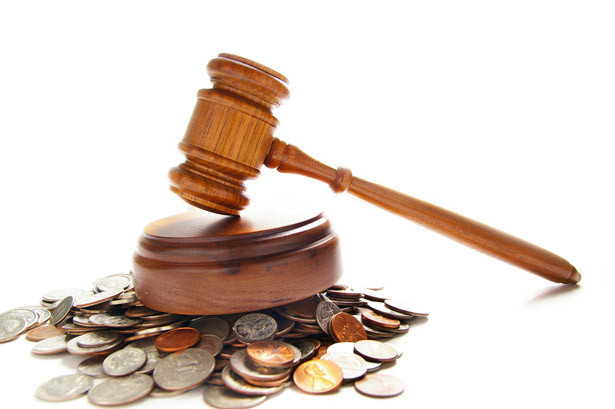lawyer, 23 years of experience in enforcement.
Enforcement fee is a fee levied on the entire territory of Ukraine for the enforcement of a decision by the bodies of the state executive service. The concept of enforcement fee is defined by Article 27 of the Law of Ukraine "On Enforcement Proceedings".
The size of the executive fee in property disputes is 10 percent of the amount subject to compulsory recovery, return, or the value of the debtor's property, which is to be transferred to the collector under the executive document, alimony arrears.
When executing decisions of a non-property nature, an executive fee is charged in the amount of two minimum wages from the debtor - an individual and in the amount of four minimum wages from the debtor - a legal entity (As of April 1, 2024, for individuals - UAH 16,000, for legal entities - 32,000 hryvnias)
The resolution on the collection of the executive fee is issued immediately after the resolution on the opening of the executive proceedings, except for the cases when alimony is collected. The enforcement fee for alimony is charged in the event that the debtor has alimony arrears, the aggregate amount of which exceeds the amount of the corresponding payments for 12 months from the opening of enforcement proceedings, and thereafter, the monthly assessment of the enforcement fee continues until the alimony arrears are paid. In this case, the resolution on the collection of the enforcement fee is issued after the payment of alimony arrears in full or in the case of the return of the enforcement document to the debt collector or the end of the enforcement proceedings based on the calculation of its accrual.
Please note that the enforcement fee is set only once, only upon the first receipt of the enforcement document for execution. In case of subsequent presentations to the state executor before the execution of the executive document, the enforcement fee is charged in the part that was not charged during the previous execution.
At the same time, the executive fee is not always charged. The legislator established a list of grounds for which the enforcement fee is not charged, and contacting a qualified attorney or lawyer will help to avoid the enforcement fee.
The following question also arises quite often: the debtor has paid the debt on his own, or the court decision has been executed, and the executor still requires the payment of an enforcement fee, especially this applies to old credit obligations and debts and other, for which enforcement proceedings have already been destroyed due to the termination terms, what to do in this case and is it possible not to pay this fee?
In this case, it is possible not to pay the enforcement fee, but for this you need to contact a lawyer or an attorney who will conduct a legal analysis and help avoid unnecessary payment of funds.
The issue of payment of the enforcement fee for old debts quite often arises in situations when a person needs to carry out a transaction, and during its execution it turns out that there is an old arrest, for which the debt was paid a long time ago, and sometimes a person did not even suspect that such arrest exists at all. Therefore, in order to avoid such a situation and to save your money and nerves, it is advisable to check for the presence of arrests and old debts in advance, before committing the transaction. Such a check can be carried out by a lawyer or lawyer quite quickly, and at the same time it will help to quickly and efficiently prepare for any transaction by conducting a high-quality legal analysis of the situation. At the same time, the cost of a lawyer's services can be much less than the payment of an executor's fee or the main fee of a private executor.
In any difficult and unpleasant situation, seek the advice of a lawyer and, if necessary, there are types of legal services that can be obtained online, while saving your time and money.
































